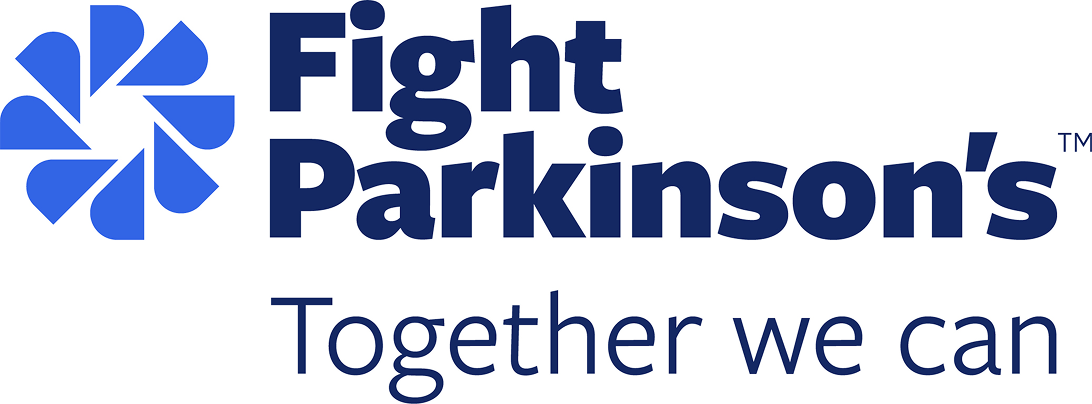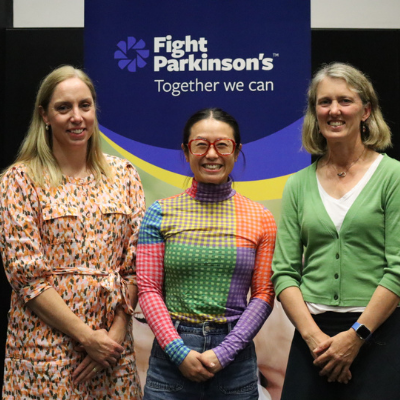 Travis’ Young Onset Parkinson’s diagnosis doesn’t stop him from living life how he wants to, but he admits it took him time to get to where he is now.
Travis’ Young Onset Parkinson’s diagnosis doesn’t stop him from living life how he wants to, but he admits it took him time to get to where he is now.
After spending years finding a career path that felt right for him, Travis found home in the Australian Army. However, just five years into his role, a joint Parkinson’s and Functional Neurological Disorder diagnosis changed his trajectory.
“It started when I was at the computer typing away, and my hand got like a slight tremor,” Travis said.
“People used to say I needed to lay off the coffee. It was probably a week later that I woke up with my left arm completely dead, down by my side.”
Travis faced continuous setbacks in receiving his Parkinson’s diagnosis and was medically downgraded for twelve months while in the Defence Force During this period, his unit accommodated him to keep him in the workforce. They remained flexible with his medical appointments and provided support for his recovery.
Travis was given an additional twelve-month extension however, at the end of the extension period, Travis was still unable to be deemed medically fit to deploy, and he was medically discharged.
Travis respected this decision and embraced the opportunity to return to Melbourne to be with his family and friends, who could support him while he came to terms with his diagnosis.
“I got what I needed instead of what I wanted and that’s the best kind of support anyone can get,” he said.
Diagnosis a chance to return home and rebuild an identity
Leaving the army and adjusting to a life with Parkinson’s was a difficult transition for Travis.
“When you leave the Defence Force, one of the common things is you’re losing that sense of identity and the family you create there.”
He was confronted with having to rebuild his identity, find employment and reconnect with his loved ones. He found himself pushing his friends and family away during the early stages of his Parkinson’s diagnosis.
Travis would limit going out, worried that his tremor might exacerbate negative experiences.
“I found it quite hard having a few people laugh when you tremor,” he said.
As a lifelong lover of physical activity, losing some of his mobility was difficult to confront.
“Before Parkinson’s, my fitness level when I was in the army was high, whether it was running and swimming, doing pull-ups, or just being able to do whatever beforehand. It was hard accepting that I can’t return to those fitness levels yet.”
Physical activity not off the cards after diagnosis
Travis wasn’t ready to give up on his love for physical activity and found a new love for Krav Maga. It was an opportunity to integrate into the community while keeping active and learning new skills. He complimented the classes with a movement program which further grew his strength and mobility.
Taking on a new workload after a Parkinson’s diagnosis
To support his transition to civilian life, Travis connected with veteran support organisation Helping Heroes. They encouraged him to connect with different specialists and Parkinson’s support groups.
They also helped him get back into the workforce and he began working remotely for a defence contractor. Travis says getting back into the workforce was one of the best things for his mental health.
Preparing for Deep Brain Stimulation surgery
In June 2023, Travis underwent Deep Brain Stimulation (DBS). Reflecting on his DBS experience, he says the hardest part wasn’t the surgery itself but having to stop his medication the day before.
“Cutting out all Parkinson’s medications was necessary in order to test the effectiveness of the DBS surgery. It was a humbling experience,” Travis said.
“It was rough. It wasn’t just rough for myself but for my parents to see me off medication. Dystonia caused my right year to pin to my shoulder and looking slight upwards, like checking for weather, speech came out in whispers and my movement all but ceased. It was a real eye-opener at how my Parkinson’s had progress and how important my medication was.”
After the surgery, Travis, his family and his partner Rose were thrilled with the results and Travis says that his quality of life has greatly improved.
Not letting Parkinson’s prevent a good life
Although Travis acknowledges he has experienced new obstacles in life, he maintains his positive mindset, knowing that it’s possible to live well with Young Onset Parkinson’s.
“DBS has changed my life for the better. Also, learning to understand the support available and the lengths people go to help you out has definitely changed me. I’ve always known that it doesn’t matter how challenging life gets – there’s always help out there,” Travis said.
Travis has gained a lot from living with Parkinson’s and says he’s learned a lot about himself as well.
“There have been times that have been really challenging, but I wouldn’t have the kind of levels of resilience and intestinal fortitude that I have now when dealing with the challenges of Parkinson’s.”
Now with a toddler at his feet, Travis is enjoying fatherhood and is committed to maintaining his health and well-being. In his free time, he loves moving as much as possible: lifting, climbing and walking with his family.
Travis remains excited about connecting with other people with Young Onset Parkinson’s and wants to share his candid experiences, sense of humour and unwavering enthusiasm for not letting Parkinson’s define him.



